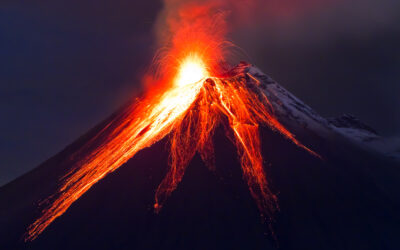The idea that we and everything in our universe might be a hologram is tied to a puzzling question in physics called the Black Hole Information Paradox.
When something falls into a black hole, the information describing it—like its shape, state, and properties—seems to vanish once it crosses the event horizon (the outer boundary of a black hole). But, according to quantum mechanics, information can’t just disappear. This creates a paradox when black holes eventually evaporate and the information seems lost forever.
Enter the holographic principle, which suggests that instead of being lost inside the black hole, the information is stored on its surface, or “event horizon.“
According to black hole thermodynamics, the amount of information a black hole can contain is proportional to the surface area of its event horizon—as mass or energy falls into a black hole, the surface area of the event horizon increases.
This was surprising to physicists because it suggests that all the information about what’s inside the black hole is somehow encoded on its surface. In other words, the 3D information inside the black hole might be “stored” or “projected” onto the 2D surface of the event horizon, much like how a hologram contains 3D images on a 2D surface.
So, if this is true for black holes, which have the highest information density possible, the same could easily apply to the entire universe. The holographic principle suggests that all the information in our 3D universe could actually be encoded on a distant 2D surface. This idea proposes that our 3D world might be a projection from a 2D boundary—just like a hologram projects 3D images from a 2D surface.
Related Articles
How Mosquitoes Changed History
They may seem like nothing more than annoying pests, but mosquitoes have played a powerful role in shaping the world. These tiny insects are considered the deadliest animals on Earth—not because of...
The History of Parody—Comedy That Pushes Boundaries
Parody—the art of exaggerating or imitating something for comedy—dates back to ancient Greece, where playwrights like Aristophanes poked fun at politics and myths. In the 1700s and 1800s, satirical...
The Science of Volcanoes—Earth’s Fiery Forces
Volcanoes are more than just eruptions—they are crucial to Earth’s formation! When molten rock, or magma, reaches the surface, it creates new land, forming islands like Hawaii and Iceland. The...





